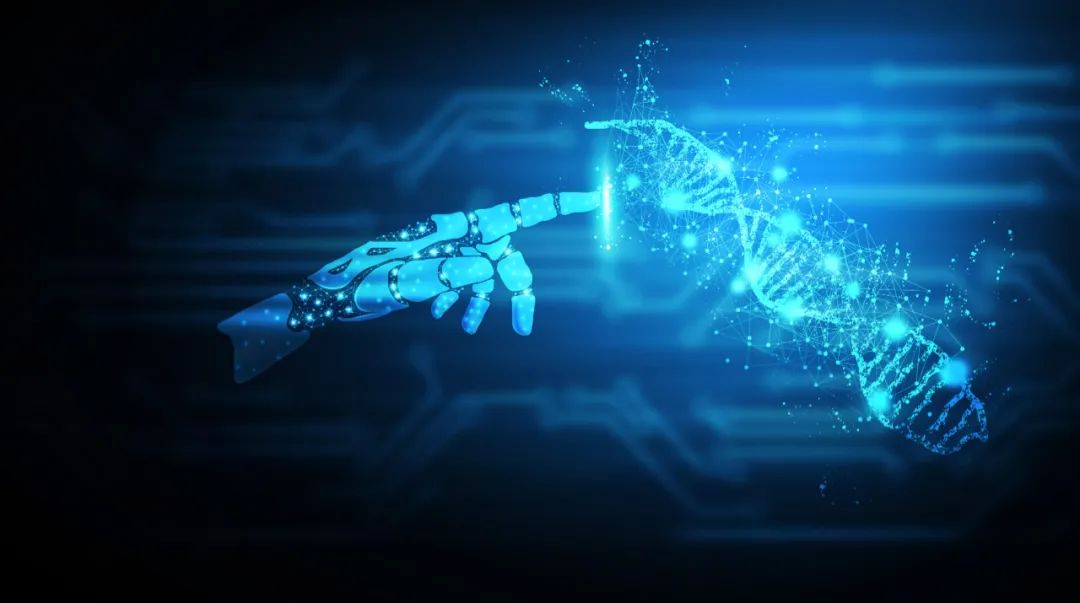
医微客一站式医学科研服务平台,让您的科研成果事半功倍!“每一项科学突破都始于一个问题。我们可能无法立即提供所有答案,但也许共享问题并与他人进行对话,是一个很好的起点。”《科学》杂志定制出版编辑Jackie Oberst博士说。2021年4月10日下午, 上海交通大学携手《科学》杂志发布“新125个科学问题” ——《125个科学问题:探索与发现》。
此次发布的问题包括数学、化学、医学与健康、生命科学、天文学、物理学、信息科学、工程与材料科学、神经科学、生态学、能源科学与人工智能等领域。除了“物质的起源是什么”“黎曼猜想是真的吗”“地球上有多少物种”等科学家始终在追问的问题,还有一些有趣的问题也将带来面向人类未来的科学探究,例如:为什么我们会
《科学》杂 坠入爱河?人类有一天会不得不离开地球吗?人类为什么会对猫狗如此着迷? 志曾于创刊125周年之际发布过125个推动基础科学研究的科学难题,对指引其后十几年的科学发展产生积极影响。
16年过去了,科技发展日新月异,科学突破层出不穷,许多问题得到一定程度的解答,一些问题更深入。“巨大的变化在许多科学领域发生,现在正是回顾过往和展望未来的大好时机(great time),来寻找科学灵感。我相信这些问题将成为代表未来的年轻人思考的重要部分。”世界顶尖科学家协会副主席、2013年诺贝尔化学奖的主Michael Levitt在致辞中说到。
此次125个科学问题《科学》杂志专刊作为交大建校125周年纪念活动之一,问题征集结合国际前沿、全球共需、科学发展,聚焦前瞻重大科学问题,面向科学家、学生、社会征集。世界顶尖科学家协会也发挥资源优势,邀请诺贝尔奖、沃尔夫奖、拉斯克奖、图灵奖、麦克阿瑟天才奖等世界“最强大脑”共同参与,共同讨论人类当前与未来面对的科学问题。
1. What makes prime numbers so special?2. Will the Navier–Stokes problem ever be solved?3. Is the Riemann hypothesis true?1. Are there more color pigments to discover?2. Will the periodic table ever be complete?3. How can we measure interface phenomena on the microscopic level?4. What is the future for energy storage?5. Why does life require chirality?6. How can we better manage the world's plastic waste?7. Will AI redefine the future of chemistry?8. How can matter be programmed into living materials?9. What drives reproduction in living systems?1. Can we predict the next pandemic?2. Will we ever find a cure for the common cold?3. Can we design and manufacture medicines customized for individual people?4. Can a human tissue or organ be fully regenerated?5. How is immune homeostasis maintained and regulated?6. Is there a scientific basis to the Meridian System in traditional Chinese medicine?7. How will the next generation of vaccines be made?8. Can we ever overcome antibiotic resistance?9. What is the etiology of autism?10. What role does our microbiome play in health and disease?11. Can xenotransplantation solve the shortage of donor organs?1. What could help conservation of the oceans?2. Can we stop ourselves from aging?3. Why can only some cells become other cells?4. Why are some genomes so big and others very small?5. Will it be possible to cure all cancers?6. What genes make us uniquely human?7. How do migratory animals know where they're going?8. How many species are there on Earth?9. How do organisms evolve?10. Why did dinosaurs grow to be so big?11. Did ancient humans interbreed with other human-like ancestors?12. Why do humans get so attached to dogs and cats?13. Will the world's population keep growing indefinitely?14. Why do we stop growing?15. Is de-extinction possible?16. Can humans hibernate?17. Where do human emotions originate?18. Will humans look physically different in the future?19. Why were there species explosions and mass extinction?20. How might genome editing be used to cure disease?21. Can a cell be artificially synthesized?22. How are biomolecules organized in cells to function orderly and effectively?22.细胞内的生物分子是如何组织从而有序有效发挥作用的?1. How many dimensions are there in space?2. What is the shape of the universe?3. Where did the big bang start?4. Why don't the orbits of planets decay and cause them to crash into each other?5. When will the universe die? Will it continue to expand?6. Is it possible to live permanently on another planet?7. Why do black holes exist?8. What is the universe made of?9. Are we alone in the universe?10. What is the origin of cosmic rays?11. What is the origin of mass?12. What is the smallest scale of space-time?13. Is water necessary for all life in the universe, or just on Earth?13.水是宇宙中所有生命所必需的么,还是仅对地球生命?14. What is preventing humans from carrying out deep-space exploration?15. Is Einstein's general theory of relativity correct?16. How are pulsars formed?17. Is our Milky Way Galaxy special?18. What is the volume, composition, and significance of the deep biosphere?19. Will humans one day have to leave the planet (or die trying)?19.人类有一天会不得不离开地球吗(还是会在尝试中死去)?20. Where do the heavy elements in the universe come from?21. Is it possible to understand the structure of compact stars and matter?22. What is the origin of the high-energy cosmic neutrinos?1. Is there a diffraction limit?2. What is the microscopic mechanism for high-temperature superconductivity?3. What are the limits of heat transfer in matter?4. What are the fundamental principles of collective motion?5. What are the smallest building blocks of matter?6. Will we ever travel at the speed of light?7. What is quantum uncertainty and why is it important?8. Will there ever be a "theory of everything"?9. Why does time seem to flow in only one direction?11. Can we make a real, human-size invisibility cloak?12. Are there any particles that behave oppositely to the properties or states of photons?13. Will the Bose-Einstein condensate be widely used in the future?14. Can humans make intense lasers with incoherence comparable to sunlight?15. What is the maximum speed to which we can accelerate a particle?16. Is quantum many-body entanglement more fundamental than quantum fields?17. What is the optimum hardware for quantum computers?18. Can we accurately simulate the macro- and microworld?1. Is there an upper limit to computer processing speed?2. Can AI replace a doctor?3. Can topological quantum computing be realized?4. Can DNA act as an information storage medium?Engineering & Material Science1. What is the ultimate statistical invariances of turbulence?2. How can we break the current limit of energy conversion efficiencies?3. How can we develop manufacturing systems on Mars?4. Is a future of only self-driving cars realistic?1. What are the coding principles embedded in neuronal spike trains?2. Where does consciousness lie?3. Can human memory be stored, manipulated, and transplanted digitally?5. What is addiction and how does it work?6. Why do we fall in love?7. How did speech evolve and what parts of the brain control it?7.言语如何演变形成,大脑的哪些部分对其进行控制?8. How smart are nonhuman animals?9. Why are most people right-handed?10. Can we cure neurodegenerative diseases?11. Is it possible to predict the future?12. Can we more effectively diagnose and treat complex mental disorders?1. Can we stop global climate change?2. Where do we put all the excess carbon dioxide?3. What creates the Earth's magnetic field (and why does it move)?4. Will we be able to predict catastrophic weather events (tsunami, hurricanes, earthquakes) more accurately?4.我们是否能够更准确地预测灾害性事件(海啸、飓风、地震)?5. What happens if all the ice on the planet melts?6. Can we create an environmentally friendly replacement for plastics?7. Can we achieve a situation where essentially every material can be recycled and reused?8. Will we soon see the end of monocultures like wheat, maize, rice, and soy?8.我们会很快看到小麦、玉米、大米和大豆等单一作物的终结吗?1. Could we live in a fossil-fuel-free world?2. What is the future of hydrogen energy?3. Will cold fusion ever be possible?1. Will injectable, disease-fighting nanobots ever be a reality?2. Will it be possible to create sentient robots?3. Is there a limit to human intelligence?4. Will artificial intelligence replace humans?5. How does group intelligence emerge?6. Can robots or AIs have human creativity?7. Can quantum artificial intelligence imitate the human brain?8. Could we integrate with computers to form a human-machine hybrid species?
添加医微客小编微信(微信号:ewitkey666),享受研究方案、数据报告、SCI文章免费评估服务。
百度浏览
来源 : 网络
版权声明:本网站所有注明来源“医微客”的文字、图片和音视频资料,版权均属于医微客所有,非经授权,任何媒体、网站或个人不得转载,授权转载时须注明来源:”医微客”。本网所有转载文章系出于传递更多信息之目的,且明确注明来源和作者,转载仅作观点分享,版权归原作者所有。不希望被转载的媒体或个人可与我们联系,我们将立即进行删除处理。 本站拥有对此声明的最终解释权。






发表评论
注册或登后即可发表评论
登录注册
全部评论(0)